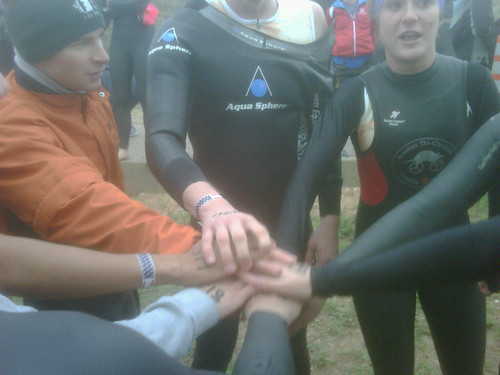 Athletes are always looking to optimize their training. Student athletes are no different. But the demands on the student athlete may be very different above and beyond the actual imposed training demands.
Athletes are always looking to optimize their training. Student athletes are no different. But the demands on the student athlete may be very different above and beyond the actual imposed training demands.
One thing that serves as a positive: student athletes tend to be highly motivated to train. They will train, and they will train hard. And let’s face it – students are already in an environment which requires a high level of motivation to succeed academically.
Intense academic coursework places a high demand on the central nervous system. Students can be stressed by those demands, and may not have good strategies to alleviate the stressors functionally. If they are active, they may use training sessions as a means of stress relief.
Recovery-Centered Training proposes that training is only as good as the athlete’s ability to recover from and adapt to the training session(s). This is where the student athlete can run into difficulties.
Throughout the course of a semester, high demands are placed on the central nervous system in terms of learning, mental challenges, and stress. The cognitive network can be compromised. The nutritional status of the student athlete may be a little precarious, especially around exam time with long study sessions and all-night preparations. Sleep may be deprived. The blood cortisol level of the student athlete will become elevated.
With all of these factors preventing optimal recovery, there will be a slower rate of adaptation to any imposed training demands. The central nervous system, and the cognitive network as a whole, will become compromised. In the meantime, the student athlete will partake in more sporadic workouts (oftentimes due to academic time demands). But when they do, they will probably go as hard and as long as they typically would because it serves as great stress relief. They may feel like they are unable to perform as they had only a few short weeks ago. They may then feel frustrated because of a perceived “drop in fitness”.
It is important for the student athlete to know that although the training sessions are important, their ability to recover is even more important. Not only are they in the midst of training their muscles and such, but they are training their brains as well! They need to continue to focus on activities that will allow their central nervous system to recover and adapt to its training (academia), eat well, sleep well, and foster its “training adaptations”. By doing so, they will then optimize its ability to recover from the physical training sessions.
As a coach working with a large team of collegiate triathletes, I remind my athletes that training is a long-term process of growth. Training program modifications may need to take place during times of increased academic demands in order to maintain the quality of training while reducing the overall volume of training. This is a time to not do more, to not push harder in training, but to be even more methodical. The student athlete needs to realize that this is acceptable – if not preferred – and that they are doing what is right for not only their training but their academic pursuits.
“Balance” is key for the student athlete. The long-term gains in fitness will come.
Photo credits: abesselink

 "Running Injuries: Etiology And Recovery- Based Treatment" (co-author Bridget Clark, PT) appears in the third edition and fourth editions of "Clinical Orthopaedic Rehabilitation: A Team Approach" by Charles Giangarra, MD and Robert C. Manske, PT.
"Running Injuries: Etiology And Recovery- Based Treatment" (co-author Bridget Clark, PT) appears in the third edition and fourth editions of "Clinical Orthopaedic Rehabilitation: A Team Approach" by Charles Giangarra, MD and Robert C. Manske, PT.
 Allan Besselink, PT, DPT, Ph.D., Dip.MDT has a unique voice in the world of sports, education, and health care. Read more about Allan here.
Allan Besselink, PT, DPT, Ph.D., Dip.MDT has a unique voice in the world of sports, education, and health care. Read more about Allan here.
 Top 5 finalist in three categories: "Best Overall Blog", "Best PT Blog" and "Best Advocacy Blog".
Top 5 finalist in three categories: "Best Overall Blog", "Best PT Blog" and "Best Advocacy Blog".